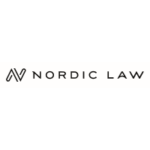-
Please provide a high-level overview of the blockchain market in your jurisdiction. In what business or public sectors are you seeing blockchain or other distributed ledger technologies being adopted?
The blockchain market in Greece has been growing steadily in recent years, though it is still in its early stages compared to some other European countries. Greece is home to an emerging blockchain ecosystem, populated by established businesses and organisations, start-ups, academia, and researchers as well as of official and unofficial communities of practice which constitute the primary facilitator of education and discussion in the field, due to the lack of relevant state-backed or industry initiatives. However, the ecosystem is relatively small.
Both the private and public sectors have begun to explore blockchain and distributed ledger technologies (DLTs) for a range of applications, with key developments in the following areas:
Private Sector
- Financial Services and Fintech
- Blockchain for Payments and Transactions: Greek fintech companies are exploring blockchain for cross-border payments, reducing costs, and increasing transaction speeds.
- Tokenization of Assets: some Greek fintech firms are exploring tokenization, which involves converting physical assets (like real estate) into digital tokens on a blockchain.
- Digital Assets and Cryptocurrency Trading: Digital assets and cryptocurrencies have gained interest. The Greek blockchain market is mainly focused on exchanges of fiat currencies with cryptocurrencies through electronic and physical ATM cryptocurrency exchanges, while at the same time there’s also interest in decentralized finance platforms, which enable users to access financial services like lending, borrowing, and trading without the need for traditional banking institutions.
- Blockchain-Based Crowdfunding: Some Greek fintech companies have explored blockchain-based crowdfunding platforms, which allow startups and small businesses to raise funds via token offerings.
- Supply Chain and Logistics
- Tracking and Transparency: Blockchain is being explored by Greek shipping companies and in the broader logistics sector to track the provenance and movement of goods. This helps ensure greater transparency and accountability in global trade routes, which is crucial for Greece as a significant player in maritime trade.
- Food and Agriculture: Greek agricultural businesses are utilizing blockchain to provide transparency in the supply chain, especially for products such as olive oil, wine, and other exports, ensuring quality and origin verification.
- Blockchain and Web3 software agencies: There is a great number of software houses in Greece, specialised in blockchain technologies.
- Greece’s adoption of blockchain technologies is growing, with potential for significant impact in industries where transparency, security, and efficiency are vital.
In the Public Sector:
There has not yet been any large-scale application of Blockchain technology in the Public Sector in Greece.
Greece is a signatory to the European Blockchain Partnership (EBP), an initiative to develop an EU strategy on blockchain and to European Blockchain Service Infrustrucutre (EBSI) which aims to leverage the power of blockchain for the public good. EBSI is an initiative of the European Commission and the European Blockchain Partnership.
Initiatives – Communities
- Fintech Innovation Hub: The FinTech Innovation Hub initiative is a scheme whereby the Bank of Greece can engage with firms and/or natural persons in order to monitor developments in the financial sector and provide non-binding guidance on the conformity of innovative financial products, services or business models with regulatory and/or supervisory expectations, including aspects of licensing or registration.
- Hellenic Blockchain Hub (https://www.blockchain.org.gr/home/, founded in 2018). Hellenic Blockchain Hub is a non-profit network of executives from the public and private sector aimed at (a) the dissemination of knowledge on the blockchain – DLT technology, (b) the promotion of blockchain technologies in important sectors of the economy and society, (c) the creation of a permanent mechanism for consultation with the Greek State and European institutions on institutional interventions or synergies,(d) networking and synergies with collective bodies and policy makers, and equivalent Greek and foreign bodies, (f) the utilization of research and development.
- Bank of Greece Regulatory Sandbox: The Bank of Greece’s (the “BoG”) Regulatory Sandbox constitutes a mechanism that enables participants to carry out small scale testing of innovations, in a controlled regulatory environment, within specified parameters and timeframes under the BoG’s supervision and in direct cooperation with the BoG. Blockchain and Distributed Ledger Technology (DLT) are included in technological aspects of innovations, which may be used by prospective applicants. The Executive Committee Act 189/1/14.05.2021 defines the terms and conditions for the establishment and operation of the Regulatory Sandbox.
- Greek Fintech Hub: Six key Greek bodies are taking part in an initiative aiming at showcasing the fintech landscape in Greece: National Bank of Greece together with Endeavor Greece, the Onassis Foundation, the Hellenic Chamber of Hotels, the National & Kapodistrian University of Athens, and the Athens University of Economics & Business. And together with these institutions, the European Crowd Dialog initiative. A series of actions have been designed to strengthen entrepreneurship in Fintech, finance innovative businesses in the sector, link Fintech with research in universities and research centers, and inform and network with important networks and initiatives abroad.
- The Greek digital Government and Public Services innovation HUB – GR digiGOV-innoHUB is led and co-ordinated by the National Infrastructures for Research and Technology (GRNET) and is supported by the country’s leading Academic and Research Institutions specializing in AI, HPC and digiGOV. The Hub is also supported by an array of business, regional authorities and civil society organisations that have expressed their willingness to participate. GR digiGOV-innoHUB aims to develop an ecosystem of digital transformation actors by promoting innovation in Public Administration through the National Digital Portal for Public Services gov.gr. The objectives of digiGOV-innoHUB are aligned with the Digital Europe Programme, Greece��s Digital Transformation Strategy 2020-2025, as well as with other European and national policies such as the OECD Framework for Innovation in the Public Sector and are summarised to the following:
- Support the development of a new generation of public services leveraging advanced digital technologies (AI, ML, IoT, Blockchain, HPC), with open source, open dataand open standards.
- Develop an ecosystem of digital transformation actors at every level of public administration
- Promote innovation in the Public Administration,
- Facilitate regional cooperation and international networking in the context of open government principles.
- Strengthen the digital skills of civil servants.
- GRNET and its partner, the Centre for Research and Technology-Hellas (CERTH) are implementing the project“Hellenic Distributed Ledger Technology Infrastructure – ELEDGER” which aims at establishing a solid pillar for the development and spreading of the European Blockchain Partnership (EBP) initiative in Greece and supporting the participation and contribution of Greek stakeholders to the European Blockchain Service Infrastructure (EBSI), in particular, with regard to the European Self-Sovereign Identity Framework (ESSIF), and the Diplomas, Notarization and Asylum use cases. GRNET represents Greece in the European Blockchain Policy Group and is a Member of the European Digital Infrastructure Consortium participating in a numerus of Research Projects pertaining Blockchain technology.
Finally, Blockchain research is carried out by several members of the Greek academia and research community.
-
Please outline the principal legislation and the regulators most relevant to the use of blockchain technologies in your jurisdiction. In particular, is there any blockchain-specific legislation or are there any blockchain-specific regulatory frameworks in your jurisdiction, either now or envisaged in the short or mid-term?
→ Legislation
A. Regulation (EU) 2022/858 of The European Parliament and of the Council of 30 May 2022 on a pilot regime for market infrastructures based on Distributed Ledger Technology” (the “DLT Regulation” or “DLTR”). The DLTR is part of the EU Commission’ EU Digital Finance Package. The pilot regime came into effect in March 2023 and is directly applicable in Greece. The DLTR lays down requirements in relation to the three categories of DLT market infrastructures (MIs) and their operators, which are defined as follows:
- DLT Multilateral Trading Facilities (MTF) that only admit to trading DLT financial instruments.
- DLT Settlement Systems (SS) that settle transactions in DLT financial instruments against payment or against delivery.
- DLT Trading and Settlement Systems, that are DLT MIs combining services performed by a DLT MTF and a DLT SS.
The Regulation defines ’Financial Instruments’ in accordance with MIFID and establishes qualitative restrictions on the types of financial instruments it governs, such as shares, debt securities, and units in collective investment undertakings. It also sets quantitative limits on the value of financial instruments that can be traded or recorded on Distributed Ledger Technology (DLT) Market Infrastructures (MIs). However, the Greek Law 5113/2024 implementing the DLTR (See below for details), goes beyond the DLT Pilot Regime in that it does not follow the limitations set forth by the DLTR with respect to the financial instruments falling within its scope.
The operation of DLT Market Infrastructures requires prior specific permission and supervision by the competent authority for the implementation of the DLT Pilot Regime, which is the Hellenic Capital Markets Commission (HCMC), and ongoing compliance with the rules introduced by the Regulation. The DLTR sets forth additional obligations for operators of DLT Market Infrastructures (MIs) to address the risks linked to DLT financial instruments, such as, among other things, establish clear and detailed business plans, written documentation, IT and cyber arrangements, establish transparent arrangements that protect investors, won funds and insurance, etc.
The European Securities and Markets Authority (ESMA) published a letter (3 April 2024 ESMA75-117376770-460) to the European Commission, the Parliament, and the Council (ECOFIN) providing an interim update on the DLT Pilot Regime.
B. Law 5113/2024 (FEK A’ 96/21.06.2024) “national measures on the Implementation of Regulation (EU) 2022/858 of The European Parliament and of the Council of 30 May 2022 on a pilot regime for market infrastructures based on Distributed Ledger Technology”. Greek Law 5113/2024, commonly referred to as the DLT (Distributed Ledger Technology) Securities Law, establishes a comprehensive legal framework for the issuance and trading of financial instruments (within the meaning of MIFID II) issued through DLT (digital securities using blockchain technology).
The Law applies to both ‘traditional’ Central Securities Depositories and new DLT Market Infrastructures where DLT Financial Instruments may be registered on.
The definition of ‘Financial Instruments’ in Law 4514/2018, which implements the MiFID Directive, has been expanded to encompass instruments created using blockchain technology. ‘DLT Financial Instruments’ now refer to all financial instruments under Law 4514/2018, such as transferable securities like shares and bonds, that are issued, registered, transferred, or stored using blockchain.
The law amends Law 4548/2018 on Sociétés Anonymes and allows Greek sociétés anonymes (corporations) to issue digital securities, such as shares and bonds, using DLT platforms, ensuring their legal validity. These securities can be listed on stock exchanges or other trading venues.
Key aspects of the law include:
- Recognition of DLT-based securities: Companies can issue dematerialized securities (non-physical) using blockchain or DLT systems.
- Initial recording and trading: The law allows digital securities to be registered either in traditional central securities depositories (CSD) or DLT market infrastructures, ensuring transparency and legal clarity.
- Rights and transfers: Clear rules are set for transferring digital securities and exercising associated shareholder or bondholder rights, giving legal security to all participants.
- Rightful holder: the rightful holder of the digital securities is the individual or entity registered with either the Central Securities Depository or the DLT Market Infrastructure.
- Compatibility with existing regulations: The DLT Securities Law ensures that securities issued via DLT comply with existing EU regulations, such as MiFID II, and do not face hurdles in trading on digital securities infrastructures, including regulated markets.
In addition, DLT Securities Law also amends Law 4099/2012, which implements the UCITS Directive, to allow the issuance, recording, transfer, and storage of units in undertakings for collective investments in transferable securities (UCITS) via blockchain, whereas is clarifies that all existing laws and regulations governing transferable securities also apply to DLT-based transferable securities.
C. Law 4961/2022, titled the “Law on Emerging Information and Communication Technologies, Enhancement of Digital Transformation, and Other Provisions”, (the “Law on Emerging Technologies”), was introduced in Greece to regulate and foster the use of emerging technologies, including blockchain, artificial intelligence (AI), Internet of Things (IoT), and other digital transformation tools. The Law of Emerging Technologies is part of Greece’s broader effort to advance its digital transformation, modernize its legal framework, and support innovation in the tech sector. With respect to the Blockchain and Distributed Ledger Technologies (DLT), the law formally recognizes and regulates Blockchain and other DLTs, aiming to establish a legal framework that promotes their development and adoption across various sectors. The Law attempts to bring this technology under the framework of civil law. In particular, it sets standards for the use of these technologies in both the private and public sectors. More precisely, Article 31 provides a definition of Blockchain and of DLT Technologies, whereas Articles 47 – 51 contain provisions regarding the ‘Application of Distributed Ledger Technologies’ (D.L.T) and in particular provisions regarding the validity of a record on the Blockchain or other DLT Technology and the enforceability of a Blockchain or DLT Technology transaction per se, as well as the allocation of the burden of proof regarding (the existence of) records or transactions performed on the Blockchain or other DLT Technologies (Art.47-48). The abovementioned provisions of the Law on Emerging Technologies on Blockchain and DLTs (a) make reference to Greek Civil Law provisions regarding the invalidity of transactions, (b) acknowledge that a Blockchain (or other DLT Technology) record could be part of a main contract conducted by other means, (c) provide that in case a Blockchain recording is declared invalid, the Court could rule for restitution in integrum by way of either amending the record on the Blockchain or by way of compensation, and (d) allocate the burden of proof among the parties, by indicating that the party relying on or invoking the existence of a recording or a transaction on a Blockchain, bears the responsibility of submitting the relevant data and information to the court; following the transformation of the programming language or code into a readable format, evidence can be submitted in court proceedings, subject to a report of a cryptography expert.
D. Law 4557/2018, which focuses on preventing and combatting money laundering and terrorist financing (AML/CFT) in Greece, as amended by Law 4734/2020 (the “AML Law”), does not explicitly reference blockchain or Distributed Ledger Technology (DLT) by name. However, it covers virtual currencies and digital assets, which are often associated with blockchain and DLT systems.
The AML Law includes provisions regarding virtual asset service providers (VASPs) and the use of virtual currencies in transactions, making them subject to the same AML/CFT requirements as traditional financial institutions. This brings businesses operating in the blockchain space, such as cryptocurrency exchanges or wallet providers, under the regulatory scope of the law. They must comply with obligations such as customer due diligence (CDD), transaction monitoring, and reporting suspicious activities, which are essential to prevent money laundering and the financing of terrorism through digital means.
E. There is no other legislation or regulatory framework in Greece specifically relating to Blockchain or other DLT Technologies. Nevertheless, several existing laws and regulations are applicable to products/ services and activities/ operations based on or use Blockchain or other DLT Technologies (see Qs 5,6 & Q 14).
F. In December 2020, the Ministry of Digital Governance issued “The Digital Transformation Strategy 2020-2025 of Greece”, the so called ‘Digital Bible’, which is the main strategic document, that sets priorities and goals for the digital transformation of the country. The Digital Bible includes provisions for the usage of Blockchain and DLT Technologies in the Public Sector, as a tool for digital transformation, emphasising on their use in the digitization of public contracts, storage of digital fingerprints of public documents, for public document and certificates verification, for health data management, for the supply chain e.t.c.
- Regulatory Bodies
- Hellenic Capital Markets Commission (HCMC), amongst other powers, is the competent authority for.
- The implementation of the DLT Pilot Regime and Law 5113/2024,
- the supervision of Virtual Assets Services Providers, already within its remit since 2021 concerning money laundering issues. More specifically, until today HCMC supervision as regards crypto-assets concerned only the implementation of the provisions of Law 4557/2018 on the “Prevention and suppression of money laundering and terrorist financing” by the providers of a) exchange services between virtual currencies and fiat currencies, but also b) custodian wallet providers.
- Bank of Greece (BoG)
- is the competent authority for financial and payment institutions
Post MICAR, A law-drafting committee is expected to be established in order to prepare a proposal on the necessary changes in regulation, including the allocation of responsibilities between the HCMC and the BoG, sanction-related issues etc.
-
What is the current attitude of the government and of regulators to the use of blockchain technology in your jurisdiction?
Based on the legislative initiatives mentioned above (Q2) and the initiatives highlighted in Q1, it can be assumed that the Greek government and the Regulators acknowledge the significance of Blockchain technology applications in key fields, both in public and private domain (transactions, authentication, financial transactions, investments etc.) and the related risks. Setting up an essential framework of regulation for blockchain activities, while at the same time Regulators provide guidelines and build on mechanisms for educating and supporting the Blockchain community, is a goal and a way going forward. It Is notable that risks for crypto fraud are provided in the national cyber security strategy.
With the enactment of the New Law on Emerging Technologies (Law No 4961/2022), and the DLT Securities Law (Law 5113/2024 ), mentioned abovw (Q2), it is acknowledged that a framework regulating the use of Blockchain and DLT Technologies will ensure legal certainty and enhance trust, foster innovation for projects based on Blockchain and other DLT Technologies and will attract more investors. Emphasis has been placed in policymaking by Government bodies, such as the Ministry of Tourism, on the Blockchain Ethical Design Framework, to safeguard social values.
In December 2020, the Ministry of Digital Governance issued “The Digital Transformation Strategy 2020-2025 of Greece”, the so called ‘Digital Bible’, which is the main strategic document, that sets priorities and goals for the digital transformation of the country. The Digital Bible includes provisions for the usage of Blockchain and DLT Technologies in the Public Sector, as a tool for digital transformation, emphasising on their use in the digitization of public contracts, storage of digital fingerprints of public documents, for public document and certificates verification, for health data management, for the supply chain e.t.c.
The Bank of Greece (BoG) acknowledges the use of blockchain technologies as part of fintech adopted by Greek financial institutions, and in particular the issuance of electronic money with the use of “blockchain” DLT technology through a digital platform (as noted in the Bank of Greece’s (BoG) Fintech Hub Annual Report, 2023).
Greece is a signatory to the European Blockchain Partnership (EBP), an initiative to develop an EU strategy on blockchain and to European Blockchain Service Infrustrucutre (EBSI) which aims to leverage the power of blockchain for the public good. EBSI is an initiative of the European Commission and the European Blockchain Partnership.
Two regulatory bodies in Greece have undertaken initiatives to facilitate and encourage the use of blockchain technology:
A. Bank of Greece (BoG): Is the country’s Regulatory Body, supervising financial institutions including e-Money Institutions, Payment Institutions, microfinance institutions and credit institutions. Bank of Greece has set up:
- Regulatory Sandbox (the ‘BoG’s Regulatory Sandbox’), (established and operating by virtue of the Executive Committee Act 189/1/14.05.2021), which constitutes a regulatory regime and a mechanism that enables participants (financial technology firms- FinTech) to carry out small scale testing of innovations in financial sector, in a controlled regulatory environment, within specified parameters and timeframes under the BoG’s supervision and in direct cooperation with the BoG. BoG acknowledges that Tokenisation, Blockchain and Distributed Ledger Technology (DLT), as well as Smart Contracts are innovative technologies and solutions which may be used by prospective Applicants within their propositions.
- Bank of Greece’s FinTech Innovation Hub has been set up to serve as a communication channel between the Bank of Greece and interested parties, by providing information, clarifications and guidance on the regulatory and supervisory framework within the Bank’s competence. Through the Hub, the Bank of Greece aims to gain a deeper insight into opportunities, challenges and risks arising from or associated with FinTech innovation; engage with firms and/or natural persons to monitor developments in the financial sector; and provide its (non-binding) guidance on the conformity of innovative financial products, services or business models with regulatory and/or supervisory expectations, including aspects of licensing or registration.
- In BoG’s Financial Stability Review, issued in November 2023, BoG makes reference to the risks of financial stability and regulatory developments associated with Crypto-assets.
B. Hellenic Capital Markets Commission (‘HCMC’): The Hellenic Capital Market Commission (HCMC) was established as a legal entity by Law 1969/91 and organized by Law 2324/1995, aiming to ensure the protection and the orderly and efficient operation of the capital market. HCMC supervises, among others, Greek and foreign firms offering investment services, undertakings of collective investments and digital wallet providers and cryptocurrency exchanges providing service in Greece for compliance with money laundering legislation. The HCMC has set up:
- The HCMC’s Financial Innovation Hub is addressed to Entities (e.g. startups) not supervised by the HCMC and to Companies, supervised by the HCMC, planning to start activities in the financial sector, within the HCMC’s competence, through the creation and/ or introduction of an innovative financial product or service based on information technology, related to the application of Robo-advice, Algorithmic trading, Equity crowdfunding, DLT/ Blockchain, FinTech, RegTech, Cloud computing, Information Technology.
The Hub has the following objectives: (a) to provide support to companies/ entities introducing innovative financial products or services in their effort to understand the applicability of the relevant regulatory framework and the compliance requirements, (b) to engage with these companies/ entities to identify and address the risks associated with innovative products or services and understand their benefits in order to promote the healthy development of FinTech in the Greek market, (c) to Identify any need for clarification or amendment in the existing regulatory framework.
- In-house Innovation Hub Working Group, comprising experts from HCMC’s various departments, which provides a dedicated contact point for entities requesting engagement with the Innovation Hub.
- The FinTech Forum, which brings together academics, researchers, representatives of startup incubators/ accelerators and agencies responsible for the dissemination of knowledge and information on FinTech with the aim to facilitate the understanding of innovative products, services, business models of the ecosystem, as well as technical architecture issues;
There is not yet any formal governmental or regulatory reviews or consultations concerning Blockchain in Greece.
Blockchain is an active topic in academia, with several academics and commentators publishing related articles.
-
Is there a central bank digital currency (‘CBDC’) project in your jurisdiction? If so, what is the status of the project?
Greece itself has not launched a specific and formal Central Bank Digital Currency (CBDC) project.
Globally, many banks and consortia consisting of public and private organisations have started work on cross-border and CBDC payments. The Bank of Greece participates in the work carried out under the Bank for International Settlements Innovation Hub and the Bank for International Settlements Innovation Network, which combines applied technology research, testing and prototype development by central banks around the world.
The Bank of Greece supports the collective work carried out in the Eurosystem by participating in the High-Level Task Force and the committees that explore all important aspects of the digital euro: monetary policy and financial stability, legal implications and IT infrastructure issues.
Bank of Greece conducted a research project that examined how the use of blockchain and AI technologies can ensure a stable, secure and reliable retail CBDC system in a crisis environment.
This Project was presented in the 3rd and 4th Eurochain Hackathon and was announced first by the participants.
-
What is the current approach in your jurisdiction to the treatment of cryptoassets and decentralised finance (‘DeFi’) for the purposes of financial regulation?
Currently, there is no in Greece any explicit law prohibiting the use and trade of cryptocurrencies, nor there be either, save for the applicability of Regulation (EU) 2023/1114 (the “MiCAR”), one piece of legislation in Greece focusing solely on the regulatory treatment of cryptocurrencies.
Given that cryptocurrencies, in any form—whether as investment instruments or as payment methods—are financial products, there is a set of Greek Laws importing European legislation applicable in the financial sector that could, on several occasions apply to the use and trade of cryptocurrencies and assets, depending on the case. Indicatively:
- Law 4514/2018 (that has implemented Directive 2014/65/EU on Markets in Financial Instruments (MiFID II), sets the authorisation and supervisory regime for the financial market and applies to a wide range of financial market participants including investment firms, Multilateral Trading Facilities (MTFs), Organized Trading Facilities (OTFs), Investment advisors, High-Frequency Traders, etc.
- Law 4706/2020 implementing The Prospectus Regulation (Regulation (EU) 2017/1129), specifying the requirements for issuing and publishing a prospectus when securities are offered to the public or admitted to trading on a regulated market within Greece.
- Law 4443/2016 importing the EU Market Abuse Regulation (Regulation (EU) 96/2014), establishing rules to prevent market manipulation, insider trading, and to ensure transparency and integrity in the financial markets. This law gives the Hellenic Capital Market Commission (HCMC) the authority to supervise compliance with MAR in Greece, providing the framework for enforcement and the imposition of penalties for violations.
- Law 4537/2018, implementing the Payment Services Directive 2 (PSD2) regulating payment services and electronic payments within Greece.
The coming into force of MiCAR, will provide a comprehensive regulatory framework for crypto-assets in Greece, enhancing the legitimacy of crypto-assets and consumers’ and investors’ trust.
Firstly, MiCAR regulates the issuance of crypto-assets, their public offering, and their admission to trading, by setting the conditions for disclosure and transparency that anyone issuing and offering crypto-assets to the public must adhere to. To this regard it resembles the Prospectus Regulation, which governs the public offerings of securities in the European Union and their admission to trading on an organized market, however, instead of securities the object of the offer and admission is crypto-assets, and the main informational document is the so called “crypto asset white paper”.
Secondly, MiCAR clearly defines the services provided in relation to crypto-assets and defines the licensing process, the organizational requirements that crypto service providers must adhere to, reporting and information obligations, while it also introduces the requirements to establish and maintain processes for handling complaints, identifying, preventing, and addressing conflicts of interest, as well as risk management and internal controls.
Thirdly, MiCAR introduces classification of crypto-assets into the following three categories: asset-referenced tokens, electronic money tokens, and other crypto-assets that do not fall into either of the two aforementioned categories and sets out the conditions for the assessment and classification of crypto-assets. This classification is significant because those crypto assets assessed and categorized as “significant” are directly subject to the supervision of the European Central Bank.
Additionally, MiCAR establishes specific capital adequacy requirements for crypto service providers and regulates issues related to market manipulation and abuse, in order to ensure the integrity of crypto-asset markets, as per the Marke Abuse Regulation (MAR).
Finally, MiCAR stablishes the right of individual holders to withdraw from their agreement to purchase crypto-assets, similar to what is provided in Law 2251/1994 on consumer protection for distance and off-premises contracts and also sets a specific framework with restrictions on the commercial promotion of crypto services/ products.
It is evident that the requirements of MiCAR largely mirror those of existing EU financial services regulations, including aspects like disclosures, governance, and licensing. However, due to subtle differences between MiCAR and the current framework (as outlined above), firms involved in crypto-asset activities must assess whether they qualify under MiCAR’s definition of “crypto-assets” or if they fall under another regulatory category. This is essential to ensure compliance with the appropriate regulations, especially for transferable securities that may be considered financial instruments under the Markets in Financial Instruments Directive II (MiFID II), as mentioned above.
-
What is the current approach in your jurisdiction to the treatment of cryptoassets and DeFi for the purposes of anti-money laundering and sanctions?
The regulation of cryptocurrencies is governed by the 5th European Union Anti-Money Laundering Directive (“AMLD5”), which has been incorporated into Greek law through Law 4557/2018, titled “On Preventing and Combating Money Laundering and Terrorist Financing,” and amended by Law 4734/2020 (the “AML Law”).
The AML Law provides essential definitions related to virtual currencies, including the term “custodian wallet providers,” defined as entities that offer services to safeguard private cryptographic keys on behalf of customers for holding, storing, and transferring virtual currencies (art. 3(25)).
Specifically, the AML Law applies to providers engaged in exchange services between virtual currencies and fiat currencies, as well as to custodian wallet providers, with definitions for both outlined in art. 3. These providers are classified as obliged entities under the AML controls stipulated in the law (art. 5, sections (ιβ) and (ιγ) respectively). Additionally, both types of providers are required to register their activities in accordance with art. 6, par. 1(b) of Law 4557/2018.
The Hellenic Capital Market Commission (HCMC) is the competent authority responsible for overseeing compliance among these obliged entities and for maintaining the respective Register. Through Board of Directors Decision No. 5/898/3.12.2020 (as amended by Decision No. 7/960/04.08.2022), the HCMC has established the formalities for these obliged entities regarding registration applications, including the required information, documents, and related costs, as well as the criteria for removal from the Register. HCMC must approve registration applications for digital wallet providers and cryptocurrency exchanges; without this approval, they are not permitted to operate in Greece or provide services to other countries.
According to HCMC Anula report (2023), in 2023, four (4) firms were registered with the Crypto-currency Service Provider Registers electronically maintained by the HCMC as providers of exchange services between virtual currencies and fiat currencies and as custodian wallet providers, and one (1) firm was registered solely as a custodian wallet provider. Moreover, in the same year one (1) Provider was stricken off the said registers.
It is still uncertain though, whether MiCAR’s implementation will replace or at least modify the registration process as was established by Decision No. 5/898/3/12/2020 of the Board of Directors of the Hellenic Capital Market Commission, or whether it will operate alongside it.
-
What is the current approach in your jurisdiction to the treatment of cryptoassets and DeFi for the purposes of taxation?
Currently, there is no specific tax regime within Greek tax legislation that governs profits gained by taxpayers from capital gains on cryptocurrencies and digital assets, or from the trading and investment in cryptocurrencies more broadly. Given that the transition to the digital euro has been set as a goal by the European Union and following the issuance of the European MiCAR Directive (Market in Crypto-Assets Regulation), the Minister of National Economy and Finance, by virtue of the Decision 31484 EX 2024/27.02.2024, established, constituted, and appointed members of a Working Group for defining a framework for the taxation and regulation of cryptocurrencies and digital assets, however the Working Group was never formed as the above mentioned Decision was revoked by the Ministry’s Decision 113793 EX 2024.
It shall be noted that the existing tax framework in Greece does not clearly define the tax treatment of cryptocurrencies, which are effectively invisible and untaxed. Essentially, cryptocurrency users operate within a gray area. To date, bitcoin is treated as a means of payment rather than an investment product, meaning that its purchase and sale are not subject to VAT (according to European Court rulings by decision C-264/14 ECJ), and there is no provision for income tax on related profits. Consequently, the tax authority does not accept income derived from cryptocurrency transactions and refuses to tax it, while taxpayers are unable to legally use their profits, as the tax authority does not recognize them as income.
As per the existing tax regime in Greece, the following assumptions are being made by accountants:
Currently, tax is imposed on capital gains arising from the sale of:
- Shares in a non-listed company, shares and other securities listed on a stock exchange, provided that the seller holds at least a 0.5% stake in the company’s share capital. b. Shares or units in partnerships. c. Government bonds and treasury bills, or corporate bonds. d. Derivative financial products. Cryptocurrencies are not included in the above list, which prevents authorities from imposing tax and, consequently, from recognizing the income generated.
There are two categories of income from cryptocurrencies:
a) Producer Income: Income from those involved in mining is considered business income, and profits, after deducting operating expenses, will be taxed according to general provisions and applicable tax rates.
b) Cryptocurrency Holders
b1) Investors: For cryptocurrency holders (investors), any capital gain (positive difference between purchase and sale price) will be taxed under general provisions if the holders are legal entities.
b2) Individuals: For individuals, regular investors will be taxed at a rate of 15% on capital gains as income from capital gains according to Article 42 of the Income Tax Code. Any potential loss can be offset against future profits from the same source within the next five years.
The taxable value of the cryptocurrency is the capital gain realized upon sale. Capital gain refers to the difference between the acquisition price paid by the taxpayer and the selling price received. According to Article 42, paragraph 3 of the Income νΤαχ Code (ΚΦΕ), “… any expenses directly associated with the purchase or sale of securities are included in the acquisition and sale price.” The tax rate is 15% on the realized capital gain, and it should be noted that this income is also subject to the solidarity contribution.
Under the accounting point view and based on the above assumptions, big accounting firms in Greece is of the view that, since cryptocurrency is considered an investment-speculative product, the amount spent on purchasing cryptocurrencies should be reported under code 743 of the tax return (expenses incurred for purchasing businesses, company shares, and securities in general) to be included in the asset substantiation calculation. Similarly, the capital from the sale of cryptocurrencies should be reported under code 781 (amounts from the disposal of assets, specifically as a return of capital). If a capital gain arises from the sale of cryptocurrencies, it should be reported under code 865 (profit from the transfer of foreign securities) for a 15% tax calculation.
Regarding the accounting treatment of cryptocurrencies, the Accounting Standards Board (Σ.ΛΟ.Τ),issued Opinion 104/27.2.2018 providing guidance on the topic. However, since implementing these guidelines involves uncharted territory, it is reasonable and expected that numerous issues will arise for discussion and resolution. The entire scientific community awaits legislative action from the government.
Furthermore, it should be noted that for expenses to be recognized, payments to Greek and foreign suppliers must be made exclusively through the banking system. Therefore, payment with cryptocurrencies is not considered an approved method for expense deduction.
-
Are there any prohibitions on the use or trading of cryptoassets in your jurisdiction? If permitted, is cryptoasset trading common?
Besides the application of MiCAR, in Greece, the use and trading of cryptoassets, such as cryptocurrencies, is permitted but subject to certain regulatory frameworks. Greece follows the EU legislation, particularly the Fifth Anti-Money Laundering Directive (5AMLD), which requires cryptocurrency exchanges and wallet providers to register with authorities and comply with Anti-Money Laundering (AML) and Countering the Financing of Terrorism (CFT) regulations
There is no outright ban on the trading or use of cryptoassets, but these activities are monitored closely for compliance with financial laws such as MIFIDII and others (see Q5).
Cryptoasset trading is relatively common in Greece, driven by increasing public interest in digital finance and the growing number of blockchain-based startups and businesses in the country.
As of 2024, Greece has a modest yet growing crypto asset industry with several crypto service providers and exchanges available for trading and investment activities. These platforms cater to different levels of users, from retail traders to institutions, offering a variety of services from standard trading and staking to more advanced DeFi and Web3 applications.
While exact figures on the number of Greek-registered crypto companies are limited, those providing exchange or wallet services in Greece are, as already mentioned in Q6, regulated by the Hellenic Capital Market Commission (HCMC) under anti-money laundering (AML) regulations and must register with the HCMC to operate legally. This registration requirement helps monitor and control entities to ensure compliance with Greece’s and the EU’s stringent financial standards.
However, it’s important to note that the Bank of Greece and the Hellenic Capital Market Commission have issued warnings about the risks associated with virtual currencies, such as the lack of regulatory oversight and consumer protection.
Overall, while trading is permitted and growing, authorities maintain a cautious approach, focusing on transparency, risk mitigation, and adherence to AML regulations.
-
To what extent have initial coin offerings (‘ICOs’) taken place in your jurisdiction and what has been the attitude of relevant authorities to ICOs? If permissible, what are the key requirements that an entity would need to comply with when launching an ICO?
Yet, with respect of the crypto/ blockchain financing and according to guidance from the European Securities and Markets Authority (ESMA) (the 2017 ESMA’s Statement on ICOs, ESMA50-157-828), firms operating ICOs shall give careful consideration as to whether their activities constitute regulated activities. Namely, where the coins or tokens qualify as financial instruments it is likely that the firms involved in ICOs (or similar) conduct regulated investment activities, such as placing, dealing in, or advising on financial instruments or managing and marketing collective investment schemes. Moreover, they may be involved in offering transferable securities to the public. In such case, they need to contact the national competent authorities.
Under the light of the AML Law (See Q6), an ICO may be considered as a service relating to cryptoassets and the entity proceeding with such an ICO may be subject to registration and organizational compliance as a Crypto Assets Service Provider (CASP).
Both the Hellenic Capital Market Commission (HCMC) and the Bank of Greece (BoG) have committed efforts to understand and eventually provide a regulatory framework for these assets. Both competent authorities have implemented their own Innovation Hub, while BoG implemented mid-2021 a Regulatory Sandbox in collaboration with EBRD, funded by the European Union. On two occasions, in 2014 and in 2018, the BoG issued announcements warning the public of the potential risks associated with digital currencies. On the same note, on three occasions, in 2017, 2018 and 2021, the Hellenic Capital Market Commission communicated to the general public the warnings of ESMA on ICOs, ESMA/EBA/EIOPA on virtual currencies and ESMA on non-regulated crypto assets, highlighting the potential risks associated with them.
There is no legal provision in the Greek regulatory regime that poses a ban on the ICOs. In principle, ICOs are unregulated in the sense that there is not overarching laws imposing legal and/or regulatory requirements on the activity of launching or running an ICO. When launching an ICO, depending on its structure (i.e nature and categorization of the tokens) the following shall be taken under consideration on a case- by- case basis:
- Where the coins or tokens qualify as financial instruments, it is likely that the firms involved in ICOs conduct regulated investment activities, such as placing, trading in or advising on financial instruments or managing or marketing collective investments schemes, in which case the MiFID II as has been implemented by Law 4514/2018
- Where the ICO structure resembles or involves the offering of transferable securities to the public, the Prospectus Directive (EU) 2017/1129 (implemented in national legal system with Law 4706/2020) may apply, which requires publication of a prospectus (subject to exemptions) with the necessary information and material for investors to conduct an informed assessment.
- Where the ICO qualifies as an alternative Investment fund, then the Alternative Investment Fund Managers Directive (AIFMD) (EU) 2011/61 (implemented in national legal system with Law 4209/2013), imposing operational and organisational rules and transparency requirement, may apply.
- Utility tokens, i.e tokens intended to provide access to a digital application or service using a blockchain, may in principle fall outside of current financial and securities regulation. Attention shall be given to utility tokens that cannot be used as such at the point in time of issuance, it must be considered a security.
- Compliance with AML Laws shall always be ensured as it is important to identify whether the issue of the token is an obliged entity that need be Registered with the HCMC.
- Tax Laws shall be taken under consideration applicable to issuers and investors.
- Contract Laws, Consumer Laws, Data Protection Laws, IP Laws, Competition Laws as well as Civil Law referred to the sale of goods, or Property Laws are applicable.
-
Are there any legal or regulatory issues concerning the transfer of title to or the granting of security over cryptoassets?
There are several legal and regulatory issues concerning the transfer of title to or the granting of security over crypto-assets such as:
- Legal Recognition: Clear legal recognition of crypto-assets as property is essential for determining ownership and facilitating transfers. To the extent and in cases where cryptoassets are not recognized as property, transfer of title may pose concerns. The mechanisms for transferring ownership of crypto-assets often depend on the underlying technology (e.g., blockchain). The legal framework may need to adapt to ensure that transfers are recognized and enforceable, including the requirements for recording and evidencing the transfer.
- Security Interests: Granting security over crypto-assets raises questions about how security interests are created, perfected, and enforced. Entities involved in the transfer or granting of security over crypto-assets may need to comply with existing financial regulations, including anti-money laundering (AML) and counter-terrorism financing (CTF) laws. This compliance can affect the legal and operational aspects of crypto-asset transactions.
- Smart Contracts: Many crypto-assets are governed by smart contracts, which are self-executing contracts with the terms directly written into code. For the enforceability of smart contracts Law 4961/2022 on Emerging Technologies and Civil Law apply.
- Jurisdictional Issues: The decentralized nature of crypto-assets can create jurisdictional challenges. Determining which laws apply to a particular transaction can be complex, especially when parties are located in different countries.
- Tax Implications: The transfer of crypto-assets may trigger tax obligations, including capital gains tax. For tax issues related to crypto assets, see Q 7.
- Consumer Protection: Ensuring compliance with these obligations can add complexity to the transfer process.
- Fraud and Security Risks:
Under Greek law, the transfer of ownership depends on the legal classification of the asset being transferred. For tokens and virtual assets, which can serve multiple functions and have various characteristics, there is no single legal framework that governs their transfer of title or security. In the absence of specific regulations for tokens or virtual assets, Greek Civil Law applies, specifically Article 361, which supports freedom of contract. This allows parties in a transaction to establish ownership transfer terms, as long as these do not conflict with mandatory legal rules.
If a token lacks a tangible certificate or medium (such as a USB or other physical item), its transfer typically occurs through the assignment of rights associated with the token rather than physical delivery. However, some complications can arise, particularly if the digital asset represents a claim against a specific issuer. In such cases, it may be unclear whether a blockchain or distributed ledger technology (DLT) transaction is sufficient for transferring ownership.
Furthermore, Greek law mandates notarization for the transfer of specific assets, such as real estate or shares, making it necessary to adhere to these formal requirements for a valid transfer of ownership. In such cases, the transfer of a token alone would not satisfy legal ownership requirements for these types of assets.
-
How are smart contracts characterised within your legal framework? Are there any enforceability issues specific to the operation of smart contracts which do not arise in the case of traditional legal contracts?
A definition for smart contracts was recently introduced for the first time in Greece in Law 4961/2022 on Emerging Technologies, providing that a smart contract is a “set of coded computer functions concluded and executed through Distributed Ledger Technology in automated electronic format with the use of instructions on the performance of actions, omissions or tolerance, which are based on the existence or absence of specific conditions, according to terms directly recorded in computer code, programmed commands or a programming language”.
The new law in Greece establishes clear criteria for what constitutes a smart contract within blockchain or distributed ledger technology (DLT). It outlines the conditions for the formation, validity, and evidentiary status of smart contracts, as well as their enforcement by both the involved parties and the judicial system. In essence, smart contracts in Greece are legally recognized, provided that they meet certain requirements, and can be enforced similarly to traditional contracts, though with additional considerations for their digital and automated nature.
In summary, smart contracts in Greece:
- Are legally binding agreements between parties, recorded as data or transactions on a blockchain or other distributed ledger technology (DLT) platforms. The terms of these contracts can either be coded by the parties or selected from predefined options.
- Their validity and enforceability depend on how they align with Greek contract law, primarily governed by the Civil Code and the Code for Civil Procedure. Smart contracts are considered valid as long as they meet the legal criteria established by these laws.
- If a signature is required for the contract, the law allows for the use of electronic signatures, ensuring that the signing process can be done digitally.
- Smart contracts can be integrated into traditional legal contracts, complying with the relevant legal frameworks, and can serve as enforceable components within broader agreements.
Smart contracts, which are self-executing contracts with the terms written directly into code, present certain enforceability issues that do not typically arise with traditional legal contracts. Some of these issues include:
- Code as Law vs. Human Interpretation: Smart contracts are automated and execute based on the code. If the code does not perfectly reflect the parties’ intentions, disputes may arise. Traditional contracts allow for human interpretation of ambiguous terms, while smart contracts rigidly follow the programmed instructions, which can lead to unintended consequences if there are bugs or unforeseen situations.
- Immutability: One of the key features of smart contracts is that they are immutable, meaning that once deployed, they cannot be altered. This immutability can create enforceability problems if the contract needs to be amended or if errors in the code result in unfair outcomes. Traditional contracts allow for renegotiation and modification if both parties agree.
- Consumer Protection Issues: Additionally, all contracts concluded on the blockchain are considered distance contracts, meaning that consumer protection laws for distance contracts will apply if one party is a consumer. This includes protections related to unfair contract terms, cooling-off periods, and the right of withdrawal. However, enforcing these rights in the context of smart contracts presents unique challenges, particularly due to their automated, self-executing nature, which may complicate the application of these traditional consumer rights.
-
How are Decentralised Autonomous Organisations (‘DAOs’) treated in your jurisdiction?
In Greece, the legal and regulatory landscape for Decentralised Autonomous Organisations (DAOs) is still developing, with no specific laws directly governing their formation or operation. Generally, DAOs are seen as experimental governance structures that rely on blockchain technology, smart contracts, and decentralized decision-making through token-holder voting. This structure complicates traditional regulatory approaches, as they lack centralized control and often operate across borders.
In Greece, DAOs may face challenges similar to other jurisdictions regarding liability and regulatory compliance, particularly if they are involved in financial services or digital asset transactions, which could bring them under existing financial regulations, such as anti-money laundering laws. Without a specific DAO framework, however, it is unclear how Greek courts would treat disputes involving DAOs or their participants, leaving most DAOs operating in a grey area legally.
This situation reflects broader trends seen in the EU and globally, where DAOs raise fundamental questions about accountability, especially when financial activities are involved. As a result, Greece, along with other EU countries, may need to consider new regulatory measures tailored to DAOs in the future to address these unique challenges effectively.
-
Have there been any governmental or regulatory enforcement actions concerning blockchain in your jurisdiction?
In 2014 and in 2018, the Bank of Greece (BoG) issued announcements warning the public of the potential risks associated with digital currencies, whereas in its Financial Stability Review, issued in November 2023, BoG makes reference to the risks of financial stability and regulatory developments associated with Crypto-assets. On the same note, on some occasions, i.e. in 2017, 2018 and 2021, the Hellenic Capital Market Commission communicated to the public the warnings of ESMA on ICOs, ESMA/EBA/EIOPA on virtual currencies and ESMA on non-regulated crypto assets, highlighting the potential risks associated with them and in 2022 the EU financial regulators’ warnings to consumers about the risks of crypto-assets, including risks of misleading advertisements and information, including via social media and influencers, fraud and malicious activities, market manipulation etc. The Hellenic Capital Market Commission has made several announcements to the general public regarding cryptotrading platforms that are operating without a license, calling for due diligence process before engaged to the crypto market, whereas in its recent announcement to the general public (dated on 13.10.2022), underlined the volatility of the crypto markets and that HCMC does not regulate cryptoassets market, nor the investment on cryptoassets. HCMC can only impose enforcement actions when it concerns regulated activities under its capacity.
-
Are there any other generally-applicable laws, case law or regulations that may present issues for the use of blockchain technology (such as privacy and data protection law or insolvency law)?
Laws
A comprehensive set of laws, beyond the regulations outlined in this document, should be taken into account by companies operating blockchains or developing blockchain-based applications (products/services). Specifically, and by way of example:
→ The intersection of GDPR (General Data Protection Regulation) and blockchain presents several legal challenges due to the fundamental differences between the principles of data protection and the decentralized nature of blockchain technology. Here are some key legal issues:
- Blockchain, particularly in its decentralized form, distributes control across multiple nodes, making it difficult to identify a single data controller responsible for managing personal data as GDPR requires.
- Blockchain’s immutability feature ensures that data, once recorded on the blockchain, cannot be altered or deleted. This creates a direct conflict with GDPR, as personal data stored on a blockchain cannot be removed.
- Blockchain typically stores large amounts of data in a distributed ledger, potentially including personal data that may exceed what is necessary for specific purposes, raising concerns about compliance with the data minimization principle
- Blockchain networks, especially public ones, may have nodes distributed globally, including in countries without GDPR-equivalent data protection laws. This raises concerns about cross-border data transfers, as the decentralized nature makes it difficult to monitor and control where data is being processed.
- Blockchain immutability makes it impossible to alter data once recorded, creating a conflict with the right of rectification. Similarly, due to the decentralized nature, data portability may be difficult to implement without significant modifications to blockchain systems.
- Smart contracts on the blockchain may automatically trigger certain actions involving personal data, raising questions about whether this consent is adequately informed and whether individuals have ongoing control over their data as required by GDPR.
→ Blockchain technology, with its decentralized, immutable, and transparent nature, presents both opportunities and challenges for intellectual property (IP) laws and rights. In particular:
- In a blockchain system, where there’s no central authority, determining the true owner or creator of intellectual property can become complex.
- Blockchain’s open and global nature means several IPR such as trademarks could be used or infringed upon by multiple parties without the trademark owner’s consent. It may be difficult to prevent unauthorized use or pursue enforcement actions in a system where no single party controls the network.
- The rise of blockchain-based domain names and non-fungible tokens (NFTs) may lead to IPRs’s dilution and to disputes over trademarked names or brand identities.
- NFTs, which certify ownership of digital assets via blockchain, often cause confusion about what rights the purchaser acquires. While the buyer owns the token representing the digital asset, they may not necessarily own the underlying IP rights to the content (e.g., an artwork or music). This distinction between owning an NFT and owning the IP can lead to misunderstandings and legal disputes.
- Patentability of Blockchain Innovations is a challenge as Questions arise about whether blockchain innovations meet the requirements for novelty and non-obviousness, especially given the open-source nature of many blockchain developments.
- Blockchain could be used for decentralized content distribution systems, potentially making it harder to enforce copyright laws.
→ Blockchain technology presents several challenges to consumer protection laws
- It is difficult to identify who is accountable for a product or service’s failure, fraud, or misconduct. Consumers may not have a clear entity to address complaints or pursue legal action.
- blockchain transactions, particularly in decentralized applications (dApps) or peer-to-peer platforms, may not have any built-in system for handling consumer complaints.
- Blockchain’s anonymity and global reach make it an attractive target for fraudsters.
- Many jurisdictions are still in the process of developing laws and regulations related to blockchain and cryptocurrency. This regulatory uncertainty can lead to gaps in consumer protection, where the legal framework may not yet be in place to handle issues such as fraud, data breaches, or contract disputes.
→ Blockchain technology presents several challenges to civil laws:
- Jurisdiction Issues: Civil law requires contracts to be tied to specific jurisdictions, which affects how they are interpreted and enforced. However, blockchain transactions are global, crossing multiple jurisdictions, making it difficult to determine which laws apply.
- Enforceability: Not all smart contract terms may align with legal principles like fairness. Courts may face difficulties enforcing or interpreting them, as many smart contracts are written in code, not legal language.
- Property Laws: Property laws must be considered, particularly in cases where blockchain products are classified as financial instruments like securities or involve real estate transactions. In such scenarios, specific legal requirements for transferring ownership, as outlined in property law, must be carefully assessed and adhered to.
→ Blockchain technology presents several challenges to traditional insolvency laws:
- In traditional insolvency proceedings, tracing and recovering assets are relatively straightforward. However, blockchain’s decentralized nature complicates asset identification and ownership, particularly when assets are stored across multiple wallets or jurisdictions. The inability to pinpoint the location and ownership of assets can hinder effective asset recovery in insolvency cases
- The classification of cryptocurrencies (e.g., as property, currency, or securities) varies by jurisdiction, impacting their treatment in insolvency. Different legal statuses may lead to inconsistent approaches in insolvency proceedings, complicating the distribution of assets among creditors.
→ Digital Operational Resilience Act (DORA) shall also be considered with regard to digital disruptions and cyber threats of financial entities as it calls for implementation of frameworks that will improve operational resilience, including robust cybersecurity measures, risk management, and regular digital testing.
Case-Law
With regard to case law, as of today, only one court ruling in Greece has addressed Bitcoin. The Court of Appeal of Western Central Greece (Decision No. 88/2021) upheld a previous decision (No. 193/2018 from the Court of First Instance) that dealt with the enforcement of an American arbitration award that involved damages paid in Bitcoin. It worth to be noted that the said court adopted the view that “[..] according to Greek legal order, bitcoin is considered digital data, not a currency. In essence, it is a digital unit of value, with no physical substance, which can be exchanged electronically [..]”.
The appellate court, in line with the New York International Convention of 1958, which Greece ratified in 1961, ruled that recognizing and enforcing such an award violated Greek public policy. The decision’s rationale was that the inflow of Bitcoin and other cryptocurrencies into Greece is incompatible with national laws, as it could promote tax evasion and financial crime, destabilizing commercial activities. Moreover, the court argued that treating Bitcoin as a decentralized currency and equating it with official currencies would undermine Greece’s economic stability, given Bitcoin’s high volatility. Thus, recognizing a foreign arbitral award that mandates payment in Bitcoin was deemed contrary to Greece’s public policy, social, economic, and legal principles.
The Court of Appeal, in its judgment, did not take into account the significant developments in the world of cryptocurrencies that occurred between the original ruling in 2018 and its decision in 2021. As a result, it is likely that this ruling will become outdated in the near future, as legal and regulatory frameworks for cryptocurrencies continue to evolve and adapt to the growing acceptance of digital assets.
-
Are there any other key issues concerning blockchain technology in your jurisdiction that legal practitioners should be aware of?
Regulatory Uncertainty: While blockchain is acknowledged under Law 4961/2022 on Emerging Technologies, there remains ambiguity in terms of its broader regulation. Legal frameworks for areas such as taxation, intellectual property, and liability in decentralized environments are still evolving. Legal professionals should stay updated on developments in both national and EU regulations.
It is essential for legal practitioners to Understand the Technology, how it works, and its potential applications. Familiarity with concepts like decentralized networks, smart contracts, consensus mechanisms, and tokenization will help in providing tailored legal advice that considers the technical specifics of blockchain projects. In addition to perform a detailed evaluation on a case-by-case basis to identify the unique attributes and functionalities of each product or service that utilizes blockchain or related technologies. This tailored approach ensures that specific legal, regulatory, and operational considerations are appropriately addressed for each case. Finally, to stay updated on evolving regulations.
Greece: Blockchain
This country-specific Q&A provides an overview of Blockchain laws and regulations applicable in Greece.
-
Please provide a high-level overview of the blockchain market in your jurisdiction. In what business or public sectors are you seeing blockchain or other distributed ledger technologies being adopted?
-
Please outline the principal legislation and the regulators most relevant to the use of blockchain technologies in your jurisdiction. In particular, is there any blockchain-specific legislation or are there any blockchain-specific regulatory frameworks in your jurisdiction, either now or envisaged in the short or mid-term?
-
What is the current attitude of the government and of regulators to the use of blockchain technology in your jurisdiction?
-
Is there a central bank digital currency (‘CBDC’) project in your jurisdiction? If so, what is the status of the project?
-
What is the current approach in your jurisdiction to the treatment of cryptoassets and decentralised finance (‘DeFi’) for the purposes of financial regulation?
-
What is the current approach in your jurisdiction to the treatment of cryptoassets and DeFi for the purposes of anti-money laundering and sanctions?
-
What is the current approach in your jurisdiction to the treatment of cryptoassets and DeFi for the purposes of taxation?
-
Are there any prohibitions on the use or trading of cryptoassets in your jurisdiction? If permitted, is cryptoasset trading common?
-
To what extent have initial coin offerings (‘ICOs’) taken place in your jurisdiction and what has been the attitude of relevant authorities to ICOs? If permissible, what are the key requirements that an entity would need to comply with when launching an ICO?
-
Are there any legal or regulatory issues concerning the transfer of title to or the granting of security over cryptoassets?
-
How are smart contracts characterised within your legal framework? Are there any enforceability issues specific to the operation of smart contracts which do not arise in the case of traditional legal contracts?
-
How are Decentralised Autonomous Organisations (‘DAOs’) treated in your jurisdiction?
-
Have there been any governmental or regulatory enforcement actions concerning blockchain in your jurisdiction?
-
Are there any other generally-applicable laws, case law or regulations that may present issues for the use of blockchain technology (such as privacy and data protection law or insolvency law)?
-
Are there any other key issues concerning blockchain technology in your jurisdiction that legal practitioners should be aware of?


















